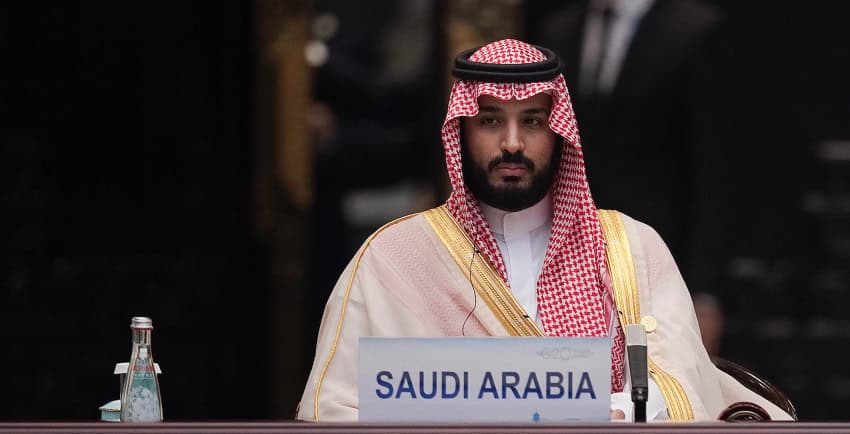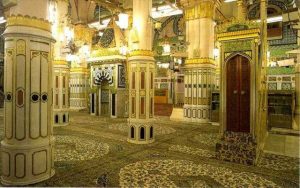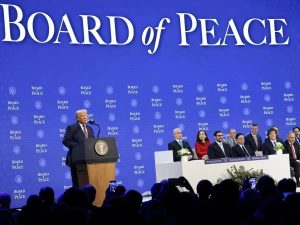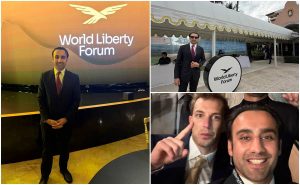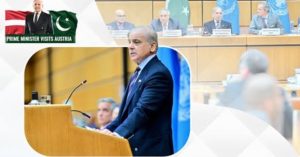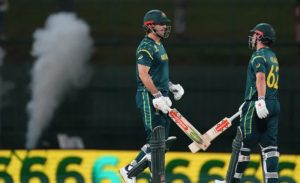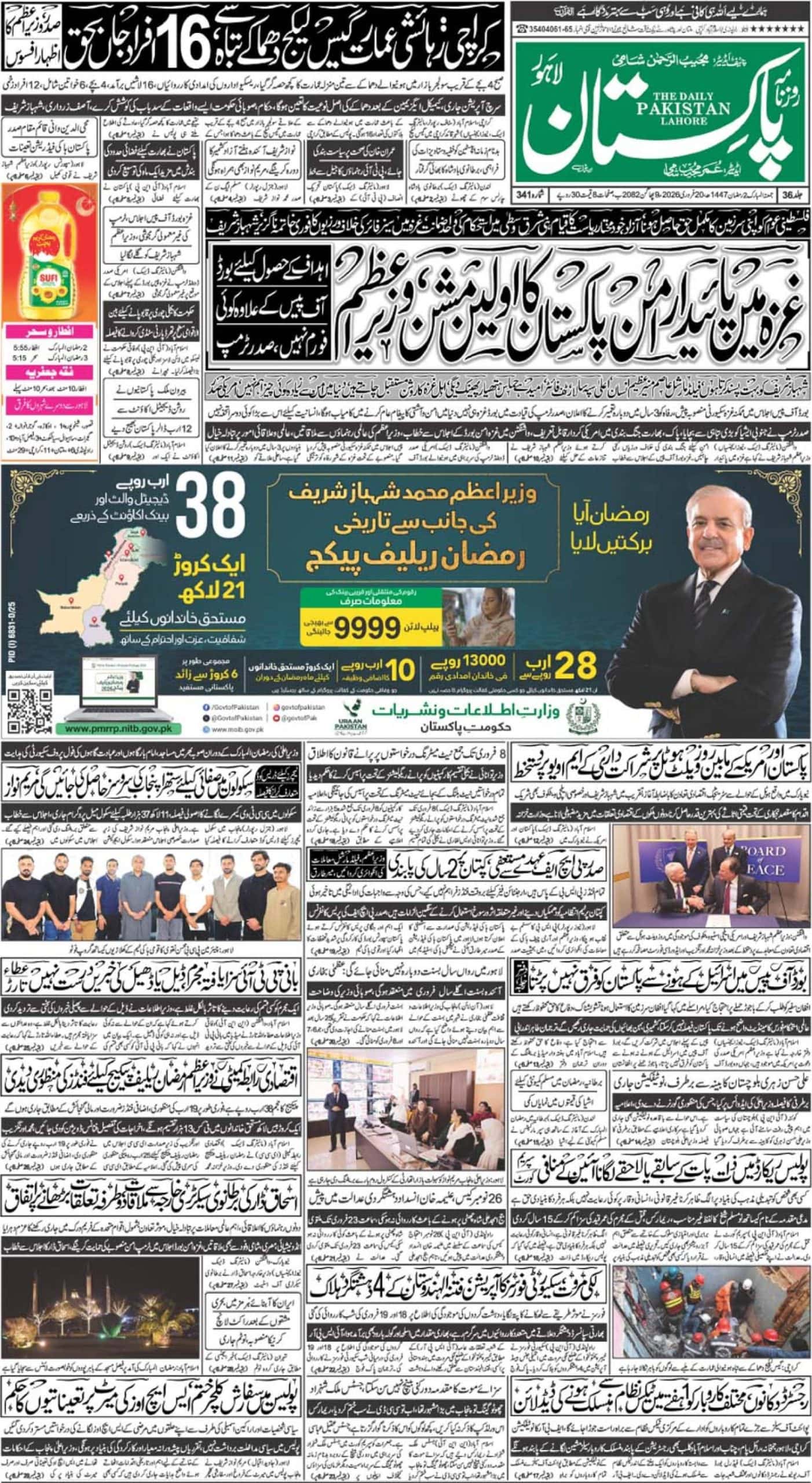RIYADH – As Saudi Arabia is exercising new options geographically from aligning itself with Trump-led America and detaching itself from Gulf neighbour Qatar, the desert kingdom is experiencing massive internal reshuffle.
More recently Deputy Crown Prince Mohammed bin Salman, who is the son of King Salman bin Abdulaziz, was elevated to Crown Prince this Wednesday.
The replacement came as a surprise owing to the fact that Saudi Crown Prince Mohammed bin Nayef was relieved to pave way for the 31-years-old prince to be the next ruler of the oil-rich kingdom.
According to a decree endorsed by 31 out of 34 members of the Allegiance Council, made up of senior members of the ruling Al Saud family, Muhammad Bin Salman was elevated to deputy prime minister retaining defence, oil and other portfolios.
Salman, also known as MBS outside the Saudi kingdom, has been privy to power corridors as he is believed to be the man ‘behind redirecting ties between House of Saud and US President Donald Trump’, who landed in Riyadh to shower his multi-billion defence blessings upon the Saudis last month.

But MBS, despite being a pivotal part of royal hierarchy, would face challenges stretching from Yemen to Syria, Iran – and now Qatar.
Let’s take a look at the life of Muhammad Bin Salman, the Crown Prince who is most likely to be the next ruler of Saudi Arabia.
Early Life & Education
Born in 1985, MBS is the eldest son of King Salman’s third wife Fahda bint Falah bin Sultan. The couple has three more children.
He earned his law degree from King Saud University and remained second in his class, according to Al Arabiya News.

However, after his graduation, he initially joined private sector to showcase his administrative skills before he could get any bigger and ‘royal’ job.
Salman’s Thrust into politics
Being a royal, it was destined for Salman to make inroads into mainstream politics, and that is exactly what happened.
Mohammad entered politics as a special adviser to his father in 2009 when the latter was the governor of Riyadh Province.
Using his background in private sector finance, he worked for the Experts Commission, which advises the government on technical financial issues.

From here, the political career of MBS reached its heights as he climbed the ladder of royal throne despite several internal rifts and hindrances.
In 2011 when Salman bin Abdul Aziz became Deputy Crown Prince and Defence Minister, MBS rejoined him as a special adviser.
The royal lad, who was 26 at that time, engaged in philanthropic activities and established Mohammed bin Salman Foundation to help underprivileged youth.
He also took a number of trips in the region on behalf of the Saudi regime, such as visiting Bahrain to discuss diplomacy.
Elevation as Chief of the Crown Prince Court
As MBS set his foot in politics, he never looked back after cementing his position in the complex web of Saudi regime.
He became Chief of the Crown Prince Court in 2012 and just two years later, he rose to become a state minister, a position guaranteeing ‘absolute’ power in coming years.

By now, he must have made up his mind to follow the same route and ascend upwards to secure a more powerful post – the royal throne.
Youngest Defence Minister
After Saudi Arabia’s 90-year-old King Abdullah death in January 2015, Salman bin Abdul Aziz became the ruler of the country but with that, MBS was chosen as Defence Minister – and that too by his father’s choice.

The then 29-years-old MBS was the youngest Defence Minister in the world. On top of that, he was also named as the secretary general of the Royal Court, as well as retaining his post as the state minister.
Appointment as Deputy Crown Prince
MBS had waded through controversies throughout his political career. The most noticeable feud between him and his grandfather Abdullah was when the late monarch banned him from joining defence ministry. However, the pair eventually came closer to each other.

But the controversies apparently seemed to polish the young member of the royal family who became Deputy Crown Prince of Saudi Arabia just two months after serving as defence minister – and that too by the directions of his father, King Salman bin Abdul Aziz.
Then, MBS appeared to be the most powerful man in the Middle East.
Yemen war and the Saudi Warrior-in-Chief
Having assumed the position many in the House of Saud crave for, it was the time for MBS to exercise his power as Defence Minister when the Wahabbi kingdom waged a war on poverty-stricken Yemen, accusing Iran-backed Houthi rebels of “destabilising peace of the region”.
The Saudi invasion of Yemen, however, drew ire from the Amnesty International.

MBS, in an interview to Bloomberg in April 2016, said: “We believe that we are closer than ever to a political solution, but if things relapse, we are ready.”
MBS getting global
Poised as the next leader of Alzheimer-suffering House of Saud, MBS rose to fame internationally as he met US Secretary of State John Kerry in 2015.

When Saudi Arabia was looking forward to the US, it was not ignoring the Russian leaders as MBS also held deliberations with Vladimir Putin to discuss the ongoing crisis in Syria, a war Saudi Arabia is not engaging in directly.

Apart from his political engagements, he also made headlines across the world when he met Facebook founder Mark Zuckerberg in 2016.

Revamping Saudi Economy
In an interview with Bloomberg, the then deputy crown prince outlined his “$2 trillion mega funds” plan to reduce the country’s reliance on oil and fundamentally change the Saudi economy.

He expressed that he would support more freedom for women, who can’t drive or travel without permission from a male relative in the kingdom, and that Saudi Arabia’s religious police would be banned from making random arrests. Well, he hasn’t been to the throne yet. Stay tuned!
Vision for Kingdom of Saudi Arabia
In April 2016, Salman launched “Vision for the Kingdom of Saudi Arabia” – a plan to bring about historic economic and social changes – which also included the creation of the world’s largest sovereign fund.
Furthermore, he reduced huge subsidies that the residents received on gasoline, electricity, and water. Added tax and VAT was to be imposed on luxury goods and sugary drinks.
The main reason behind these taxes and subsidy cuts was to generate non-oil revenue of $100 billion a year by 2020 apart from the oil revenue.
Extravagant Lifestyle
Although the country having the most sacred Islamic sites is passing through a rough patch in terms of economy testified by the deportation of thousands of Pakistanis in recent few months, MBS lifestyle gives a different view.
During a holiday in the Cote d’Azur last year, the prince took only a few hours to buy the yacht of Russian billionaire Yuri Sheffler for 500 million euros (roughly $550 million).

The monster yacht was once among the world’s three biggest, according to Forbes, behind Chelsea FC owner Roman Obramovitch’s 162.5m Eclipse and iron and steel tycoon Viktor Rashikov’s 140-metre Ocean Victory.
Luxury lifestyle
Prince Salman owns a farmhouse in Diriyah, on the outskirts of Riyadh.

A high wall that looks like the mud-brick bulwark of a desert castle guards the house. The property, where King Salman and his son have offices, sits atop a small hill in the heart of the Al Sauds’ ancestral lands.
The open-air living room at one of Prince Mohammed’s residences.MBS, when asked about his upbringing, responded that he benefited from two influences: technology and the royal family.
His generation was the first on the Internet, the first to play video games, and the first to get its information from screens, he says. “We think in a very different way. Our dreams are different.”

Muhammad Bin Salman Family
Despite being a member of House of Saud, known for polygamy and an extended family, MBS has only wife and four children – two boys and two girls – ranging in age from 1 to 6.
He relies on his wife for the upbringing of his kids who occasionally gets upset due to the same pressure.
“Working, sleeping, eating, and drinking don’t leave a lot of time to open another household,” he told Bloomberg in response to the question about second marriage. “It’s already tough [enough] living with one family.”
Challenges Ahead
Analysing the trajectory of Mohammad Bin Salman, it appears that the lady luck is smiling on his face ever since he joined politics but as Crown Prince and surely the next ruler of Saudi Arabia, there are countless challenges that he would face.
The Yemen Civil war would pose a strategic threat to the kingdom and recent cutting off ties with Qatar could also worsen in days to come due to firm stance of the latter.
Keeping the Iranian factor in focus, which also has a key role in the rise of Prince Mohammad, Saudi Arabia is establishing an Islamic-American-Arab alliance.

Saudi Arabia and Iran have developed differences over a past few years but the ties between two regional rivals became extremely fraught after the recent visit of US President Donald Trump in which the Shia state was particularly sidelined and identified as “a threat to the world”.
Last month, Prince Mohammed ruled out any dialogue with Iran while framing the rivalry, which has played out via proxy forces in Syria and Yemen, in theological terms.
Mohammad said that Tehran’s ultimate aim is to wrest control of Islam’s holiest site in Makkah. “We won’t wait for the battle to be in Saudi Arabia,” he said, without elaborating on policies. “Instead, we will work so that the battle is for them in Iran, not in Saudi Arabia.”
It is clear now that Iran has been declared an open enemy by Saudi Arabia, especially by the emerging leader of the House of Saud.
Let’s see which way this king-in-making takes the country, which is revered by over 1.8 billion Muslims for the holy sites there – including Masjid Al-Haram (Kaa’ba) and Masjid-e-Nabvi (PBUH).
Better economic policies for the countrymen or a full fledged war with Iran – the future is about to unfold before us.

